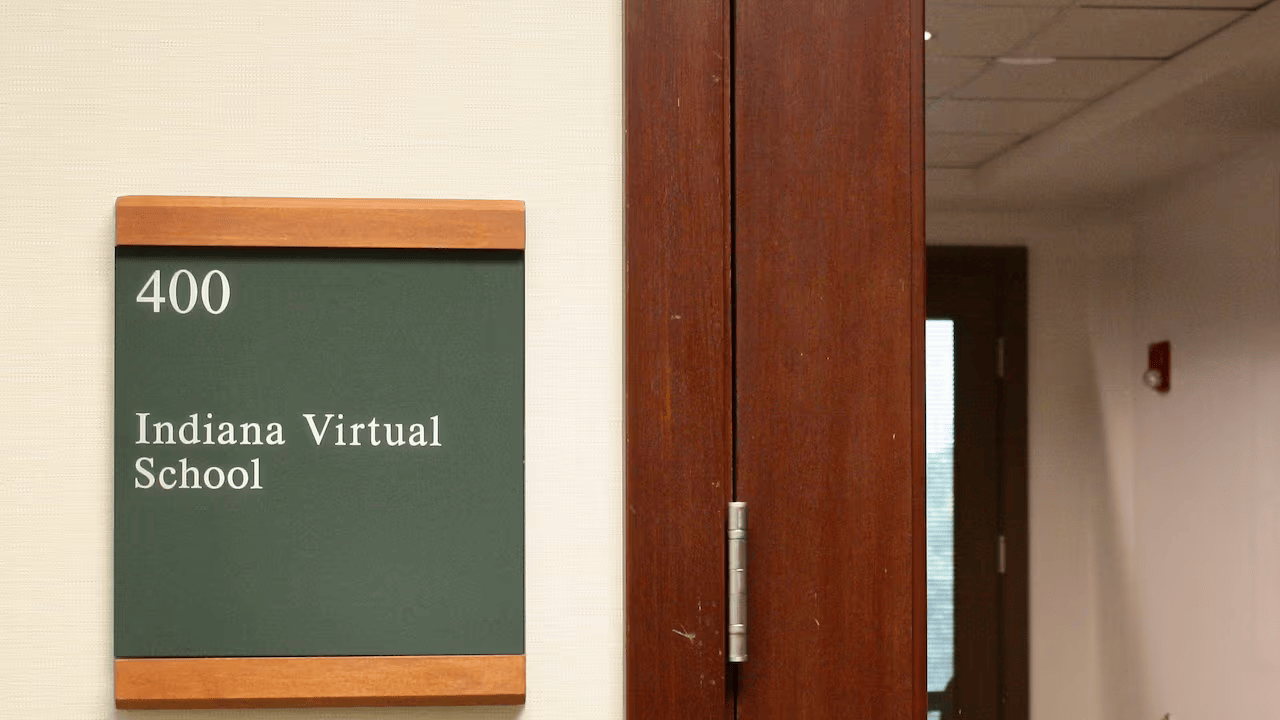Former virtual charter school leaders face federal charges tied to alleged enrollment scam
This story was originally published by Chalkbeat. Sign up for their newsletters at ckbe.at/newsletters.
Several former charter school operators were indicted last week for their alleged roles in conspiring to defraud the state of Indiana by padding student enrollment at virtual charter schools.
The operators of Indiana Virtual School (IVS) and Indiana Virtual Pathways Academy (IVPA) are accused of inflating the number of students who attended the institutions by thousands of students and accepting more than $44 million from the state, according to the 24-page federal indictment.
The defendants face a combined 76 charges including wire fraud, conspiracy to commit wire fraud, and money laundering.
A state audit in 2020 said the two schools inappropriately spent more than $85 million in public funding on companies connected to school officials. Of that amount, more than $68 million was improperly collected by the schools, the audit reported.
The state funding was allegedly funneled through several for-profit companies owned by the schools’ founder, Thomas Stoughton, and then paid out to himself, his family, former IVS and IVPA Superintendent Percy Clark, and others, the indictment said. Federal prosecutors allege the money was then spent on extravagant purchases ranging from a Cadillac and jewelry from Tiffany & Co. to private school tuition.
The federal indictment, filed by the U.S. attorney for the Southern District of Indiana, comes several years after the state attorney general sued the charter schools — which folded in 2019 — to recoup the state funds. That case is still ongoing per court records.
A 2017 Chalkbeat investigation into Indiana Virtual School and Indiana Virtual Pathways Academy uncovered inflated enrollment, conflicts of interest, and dismal academic results.
The former virtual school officials and their attorneys didn’t respond to requests for comment, but officials with the schools have previously denied wrongdoing. Online court records show that Clark submitted a not guilty plea. A person who answered a phone number listed for Clark said “no comment” and hung up.
The indictment also raises questions about charter school authorizers, which are government- or university-related entities that essentially provide the same oversight an elected school board exercises over traditional public schools. But observers have asked if warning signs were missed by the authorizer in this case, and if the state is too lax on the authorizers themselves.
The indictment spelled out a complicated scheme to inflate enrollment in exchange for state money. According to the indictment, the virtual schools were required under state law in 2017 to monitor attendance and withdraw students who didn’t log in for online classes.
According to the indictment, Stoughton, along with Clark, Director of IVS Phillip Holden, school operations manager Christopher King, a manager of student services representatives listed as “individual 2,” and others “conspired to defraud the State of Indiana through their operation of two online charter schools.”
They allegedly did this in part by counting partially completed application forms from students. “Most of these ‘students’ never participated in any way,” the indictment stated.
The defendants are also accused of falsely re-enrolling students who in fact left, as well as telling teachers not to disenroll any students, according to the indictment. (One teacher was allegedly fired for trying to blow the whistle on the arrangement.) These numbers were turned over to the Indiana Department of Education by the schools’ leaders and used by the state to calculate funds sent to the schools.
Teachers at the schools, though, were only paid for the students who were legitimately enrolled, the indictment noted.
Millions of dollars were then transferred to several companies and bank accounts under the control of the defendants, according to the indictment. Money was then drawn from the accounts by the defendants to make purchases that include a Cadillac sedan costing more than $58,000, private school tuition at Park Tudor, and about $11,000 at Tiffany & Co.
Amelia Pak-Harvey covers Indianapolis and Lawrence Township schools for Chalkbeat Indiana. Contact Amelia at apak-harvey@chalkbeat.org.
MJ Slaby oversees Chalkbeat Indiana’s coverage as bureau chief. She also covers access to higher education and Warren Township Schools. Contact MJ at mslaby@chalkbeat.org.
Chalkbeat Managing Editor Carrie Melago contributed to this article.
Chalkbeat is a nonprofit news organization covering public education.
